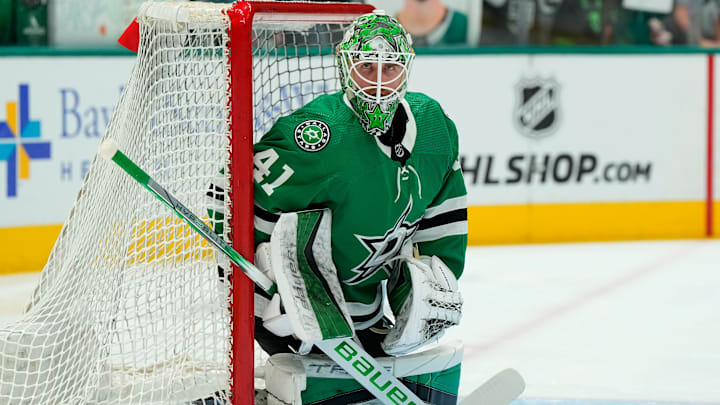With all of the excitement from the opening of free agency (and Canada Day), it can be easy to overlook the Nashville Predators signing Scott Wedgewood to a two-year deal worth $3 million with AAV of $1.5 million.
Last season Wedgewood played in 32 games, starting 28, going 16-7-5 with a goals-against average of 2.85 and a save percentage of .899 with the Dallas Stars. His career numbers are 48-48-22 with a .906 save % and a 2.98 goals-against average.
Wedgewood was an upper-echelon AHL goalie who has raised his game enough to stick in the NHL as a backup and has carved out a spot where on a good team he won't hurt you and will likely win the majority of the starts he does make.
Nashville Predators General Manager Barry Trotz laid out his outlook of the goalie depth in his free agency press conference:
""I have to also protect our organization for the long run, so Scott Wedgewood is there.""Barry Trotz via NashvillePredators.com
Amongst the crop of backups on the market this year, like Anthony Stolarz, Laurent Brossoit, Casey DeSmith, and Kevin Lankinen, Wedgewood doesn't stand out, but none of them really do. Brossoit and Stolarz might jump off the page because they are Stanley Cup-winning backups, but across the stats, none of them are standing head and shoulders above the other.
Wedgewood is a good choice for the Predators because they need a backup who will be able to play this year to help spell the freshly extended Juuse Saros. They need a player that they feel more comfortable with than Lankinen obviously.
If Wedgewood can be a guy who plays 25 games and lets Saros stay healthy and be both physically and mentally sharp for the playoffs he'll have outperformed his contract. Lankinen started just 17 games last season behind Saros while putting up nearly the same GAA as Wedgewood.
Wedgewood signing isn't necessarily a bad thing for Askarov's development
The beauty of a simple small-time signing like Wedgewood is that it doesn't have to be something that stops the development of Yaroslav Askarov. With Troy Grosenick departed for the Minnesota Wild organization, Askarov should get an even bigger share of the starts in the AHL. He's got to play to develop and he does the Predators no good playing 20-25 games a year as a backup. Playing 45-50 games in the AHL does him a lot more good.
If Askarov does well (which he should) and Wedgewood has a good season, the trade deadline could also become interesting. Askarov would be a valuable playoff backup for the Predators, while Wedgewood can be trade bait for an Eastern Conference team that needs an extra goalie to feel comfortable or faces an unexpected injury. With his small contract, he becomes a player that is easily moved.
There is also the reverse. With Askarov in the final year of his rookie deal and Saros extended for a long time, Askarov might end up being the trade deadline chip. He's exactly the type of player that could be traded to a lower-end team, who then gives him a post-deadline tryout before resigning him.
Wedgewood is secured for two seasons, which gives the Predators time to develop players like 2024 draft pick Jakub Milota, and Ethan Haider, former NCAA standout. They've effectively reset the clock on developing the "next" franchise goalie.
All it cost General Manager Barry Trotz was two years and $3 million. A very shrewd move again from the general manager indeed.
